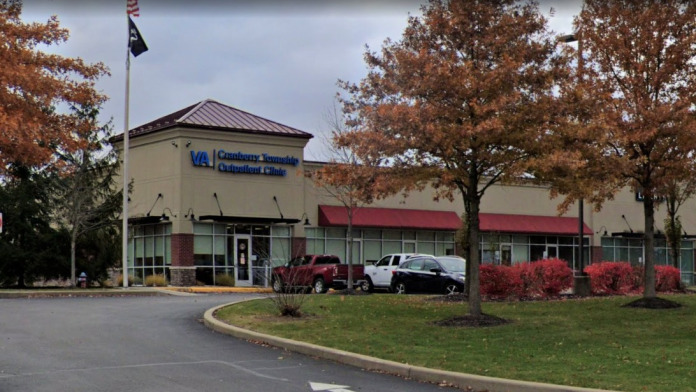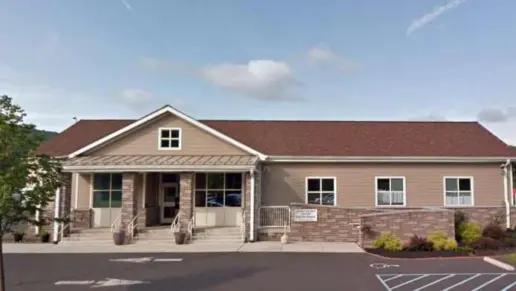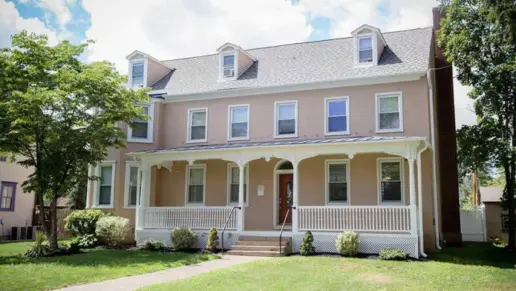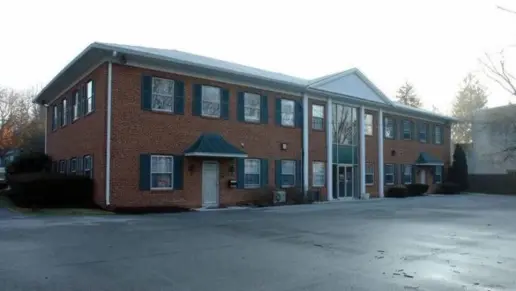About VA Butler Healthcare – Cranberry Township OP Clinic
Cranberry Township VA Clinic can assist veterans with substance misuse issues and mental health issues. They’re located in Cranberry Township, Pennsylvania, right next to Brush Creek. They offer dual diagnosis services to men and women who have served in the military.
Co-occurring conditions such as depression, anxiety, bipolar disorder, schizophrenia, and PTSD can all become problematic when attempting to quit drug misuse, since the mind plays a powerful role during the recovery process. Veterans may face lots of trauma throughout their time on active duty, making this service essential.
Another service that may prove essential is something called medication assisted treatment (MAT). It’s offered in their tobacco cessation program and can be available for drugs and alcohol, too. This service uses medication—I’ll offer Vivitrol and Suboxone as a couple of examples—to minimize the intensity of withdrawal symptoms and reduce any discomforting cravings that may make it more difficult to quit on your own. When detoxing, especially from alcohol and certain drugs, it’s important to do it under professional medical supervision.
Counseling is the main thing you’ll want to take advantage of when visiting this VA clinic. You can meet up there for individual therapy, find comfort in group therapy, or learn about your relationship through marriage counseling. All of these will help you identify triggers that may be causing you to stumble, learn new coping strategies, and deal with past trauma. The clinic’s other programs, like MOVE! and their nutritional classes and even Cranberry’s community fitness regimens, can get you back into shape so that you’ll feel and look better for that extra bit of self-confidence without turning to drugs.
With your peer group, you can even meet up outside the clinic. Cranberry’s Park and Recreation division offers classes and programs that can be healthy alternatives and one way to get back to your community.
Latest Reviews
Rehab Score
Gallery

Location
Other Forms of Payment
Military members, veterans, and eligible dependents have access to specific insurance programs that help them get the care they need. TRICARE and VA insurance can help you access low cost or no cost addiction and mental health treatment. Programs that accept military insurance often have targeted treatment focused on the unique challenges military members, veterans, and their families face.
Self-pay involves paying for treatment out of your own pocket. You can use savings or credit, get a personal loan, or receive help from family and friends to fund your treatment. If you don't have insurance or your insurance plan doesn't cover a specific program, self-pay can help ensure you still get the care you need.
Private insurance refers to any kind of healthcare coverage that isn't from the state or federal government. This includes individual and family plans offered by an employer or purchased from the Insurance Marketplace. Every plan will have different requirements and out of pocket costs so be sure to get the full details before you start treatment.
Medicare is a federal program that provides health insurance for those 65 and older. It also serves people under 65 with chronic and disabling health challenges. To use Medicare for addiction treatment you need to find a program that accepts Medicare and is in network with your plan. Out of pocket costs and preauthorization requirements vary, so always check with your provider.
Financial aid can take many forms. Centers may have grants or scholarships available to clients who meet eligibility requirements. Programs that receive SAMHSA grants may have financial aid available for those who need treatment as well. Grants and scholarships can help you pai for treatment without having to repay.
Addiction Treatments
Levels of Care
Treatments
Many veterans have problems with use of alcohol, tobacco, or drugs. This can include use of street drugs as well as using prescription medications in ways they weren’t prescribed. Such substance use can harm health, cause mood and behavior problems, hurt social relationships, and cause financial problems. Many people find it difficult to cut down or stop using substances on their own. Effective treatments for substance use problems are available at VA. Available treatments address all types of problems related to substance use, from unhealthy use of alcohol to life-threatening addictions.
Mental health rehabs focus on helping individuals recover from mental illnesses like bipolar disorder, clinical depression, anxiety disorders, schizophrenia, and more. Mental health professionals at these facilities are trained to understand and treat mental health issues, both in individual and group settings.
Programs




Clinical Services
Cognitive Behavioral Therapy (CBT) is a therapy modality that focuses on the relationship between one's thoughts, feelings, and behaviors. It is used to establish and allow for healthy responses to thoughts and feelings (instead of unhealthy responses, like using drugs or alcohol). CBT has been proven effective for recovering addicts of all kinds, and is used to strengthen a patient's own self-awareness and ability to self-regulate. CBT allows individuals to monitor their own emotional state, become more adept at communicating with others, and manage stress without needing to engage in substance abuse.
Whether a marriage or other committed relationship, an intimate partnership is one of the most important aspects of a person's life. Drug and alcohol addiction affects both members of a couple in deep and meaningful ways, as does rehab and recovery. Couples therapy and other couples-focused treatment programs are significant parts of exploring triggers of addiction, as well as learning how to build healthy patterns to support ongoing sobriety.
Dialectical Behavior Therapy (DBT) is a modified form of Cognitive Behavioral Therapy (CBT), a treatment designed to help people understand and ultimately affect the relationship between their thoughts, feelings, and behaviors. DBT is often used for individuals who struggle with self-harm behaviors, such as self-mutilation (cutting) and suicidal thoughts, urges, or attempts. It has been proven clinically effective for those who struggle with out-of-control emotions and mental health illnesses like Borderline Personality Disorder.
Experiential therapy is a form of therapy in which clients are encouraged to surface and work through subconscious issues by engaging in real-time experiences. Experiential therapy departs from traditional talk therapy by involving the body, and having clients engage in activities, movements, and physical and emotional expression. This can involve role-play or using props (which can include other people). Experiential therapy can help people process trauma, memories, and emotion quickly, deeply, and in a lasting fashion, leading to substantial and impactful healing.
Research clearly demonstrates that recovery is far more successful and sustainable when loved ones like family members participate in rehab and substance abuse treatment. Genetic factors may be at play when it comes to drug and alcohol addiction, as well as mental health issues. Family dynamics often play a critical role in addiction triggers, and if properly educated, family members can be a strong source of support when it comes to rehabilitation.
Group therapy is any therapeutic work that happens in a group (not one-on-one). There are a number of different group therapy modalities, including support groups, experiential therapy, psycho-education, and more. Group therapy involves treatment as well as processing interaction between group members.
In individual therapy, a patient meets one-on-one with a trained psychologist or counselor. Therapy is a pivotal part of effective substance abuse treatment, as it often covers root causes of addiction, including challenges faced by the patient in their social, family, and work/school life.
Vocational Rehabilitation at VA Butler assists Veterans to prepare for, find, and maintain suitable jobs. Employment services such as job training, employment-seeking skills, resume development, and other work-readiness assistance is available for Veterans to achieve their employment goals. VA is contributing significant resources to numerous initiatives promoting Veterans education, training, and employment, including the post 9/11 GI Bill, vocational skills development services and programs, and VA for Vets.
Nicotine Replacement Therapy (NRT) is a way of getting nicotine into the bloodstream without smoking. It uses products that supply low doses of nicotine to help people stop smoking. The goal of therapy is to cut down on cravings for nicotine and ease the symptoms of nicotine withdrawal.
Nutrition therapy, aka medical nutrition therapy (MNT), is a way of treating physical, emotional, and medical conditions through diet. Specific dietary plans are designed by professional nutritionists or registered dietitians, and patients follow them in order to positively affect their physical and mental health.
Trauma therapy addresses traumatic incidents from a client's past that are likely affecting their present-day experience. Trauma is often one of the primary triggers and potential causes of addiction, and can stem from child sexual abuse, domestic violence, having a parent with a mental illness, losing one or both parents at a young age, teenage or adult sexual assault, or any number of other factors. The purpose of trauma therapy is to allow a patient to process trauma and move through and past it, with the help of trained and compassionate mental health professionals.
Amenities
-
Residential Setting
-
Private Setting
-
Private Transportation
Accreditations

The Commission on Accreditation of Rehabilitation Facilities (CARF) is a non-profit organization that specifically accredits rehab organizations. Founded in 1966, CARF's, mission is to help service providers like rehab facilities maintain high standards of care.
CARF Accreditation: Yes

The Joint Commission, formerly known as JCAHO, is a nonprofit organization that accredits rehab organizations and programs. Founded in 1951, the Joint Commision's mission is to improve the quality of patient care and demonstrating the quality of patient care.
Joint Commission Accreditation: Yes
Accreditation Number: 2281
Contact Information
900 Commonwealth Drive
Suite 900
Cranberry Twp, PA 16066


